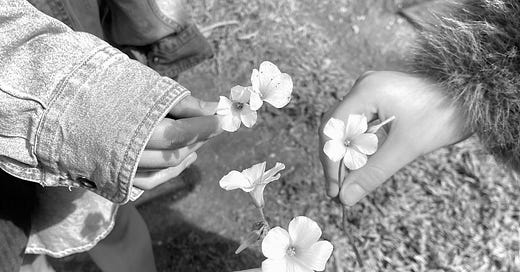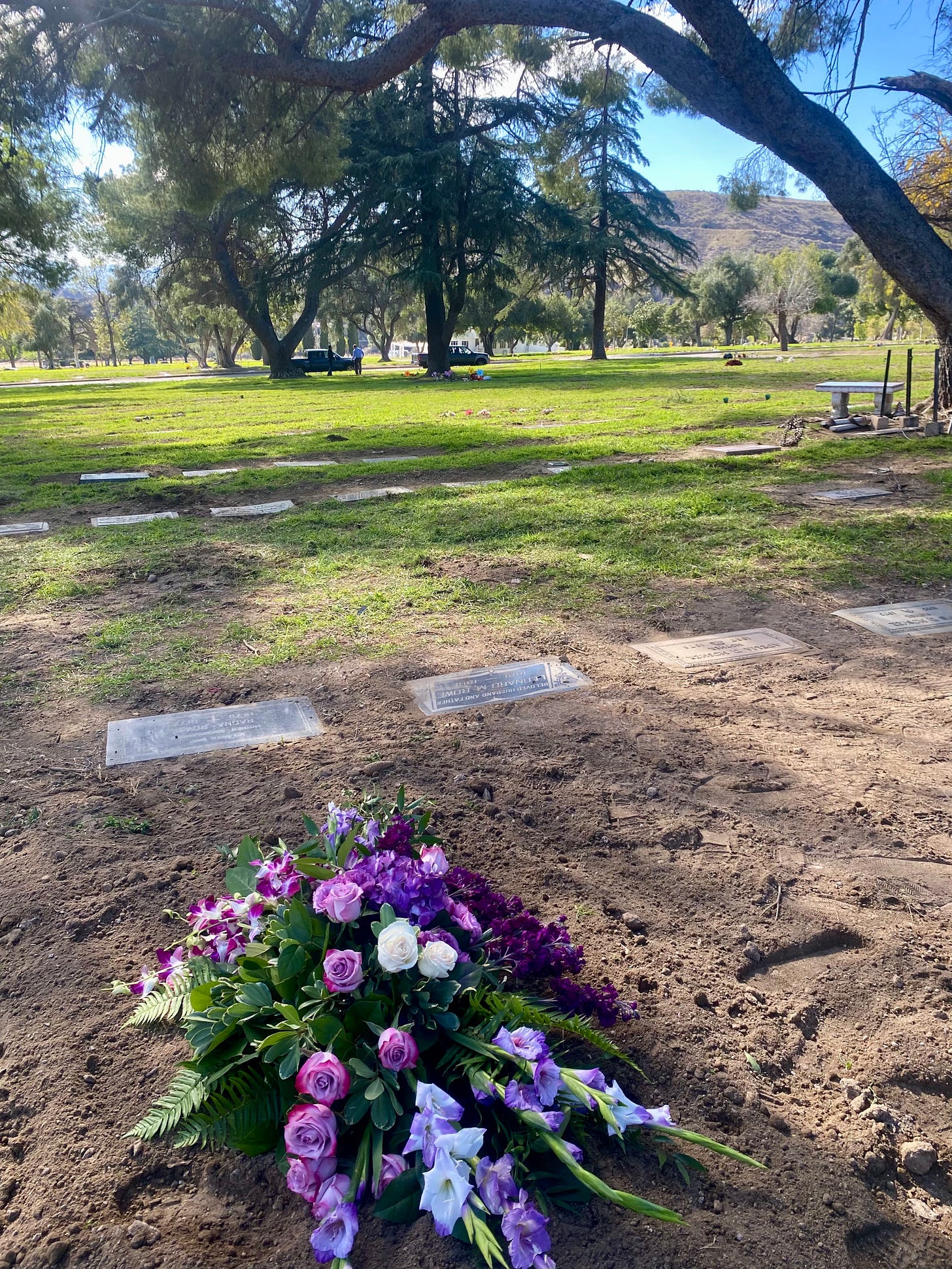This last week was jam packed with travel, emotion, and necessary deep breaths so this is landing in your inbox a day late. Happy Monday-almost-Tuesday.
There’s no shortage of things I could unravel from the past seven days. Flying out to LA for my aunt Bren’s funeral. How it felt to assist with her hair and makeup for her wake. Squeezing hands of my family members while falling into winding conversations about life, death, and what type of vegetables we’d be. My uncle Rick declared himself corn; Greg was swiftly dubbed Gregg-plant; and before I could object, everyone began calling me garlic.
Finding ourselves in produce felt like a pleasant pause from what it means to be human.
There were many sentiments spoken about Bren at her service. Kind, passionate, educated—she championed women, handled what needed handling, and stepped up when everyone else was breaking down. You could always depend on her love and listening ear.
She was an incredible woman with a fierce spirit and a deep well for others.
At a certain point, my dad, with tears in his eyes, tried to convey what it felt like to recognize that his sister was gone and that I, his daughter, was now the grown-woman in the family. The aching nature of time. An unexpected passing of a torch.
As we gathered to honor her, I spoke about her long struggle with chronic pain, an experience we often commiserated over. And, how, even in that pain, we shared a belief that life was still always worth pursuing.
It is odd that those words have begun to take new shape for me as I reflect on her life, our similarities, and what it means to be a woman in my lineage. I find myself wanting to deepen, evolve, expand, and pivot. To take the foundations of what’s been done well… and do better.
The question that spontaneously arose in my mind after I spoke was: Why had I framed pain and the pursuit of life as opposing forces, as if life exists separately from pain?
From there, I’ve been re-examining my relationship to pain and where I sense my understanding has become rigid.
The thing that I have most in common with my aunt beyond a history of chronic pain is that I also have a deep well for others. That cross-over has nudged me toward a truth I’ve been long overlooking: my capacity to be with other’s discomfort is far greater than my bandwidth to be with my own.
Over time, it’s been easy to tell myself that I’m ‘good’ at sitting with pain—emotional or otherwise, because, compared to others, that might seem true. I tend to be comfortable with a wide range of life’s discomforts, things that might trigger, unsettle, or send others out of the room. But comparison has a way of lending fiction the weight of reality. The real measure, of course, is how honestly I face my own nature.
Pain is infinite, fractaling in every direction. At some point, though, I had reached a depth within me that felt like understanding, just enough emotional agility to convince myself I could stop there. Then, I began absorbing the discomfort of those around me so that the feedback loop would tell me that I rank expert-level at being uncomfortable. It is a very sly, unconscious way to actually become avoidant by getting everyone else to tell me that I’m not.
As people shared their reverence for Bren and her deep well, it was often mentioned how readily she put herself aside for those she loved. While there’s a purity of heart in that, I recognize the pattern in myself, and I know the toll it inevitably takes. Hiding from or denying ourselves creates that fracture, where pain begins to feel at odds with life.
If Bren is passing me a torch, it’s one that was lit by fierce compassion and that is also how I imagine it will be kept aflame. To do so requires that I truly know compassion, which is a boundless thing, just like pain, just like all of the other parts of ourselves. Which I can only get to know through my own boundless nature.
My experience is the only one that I can fully inhabit and engage with. To consistently turn inward, to confront, and to tend those intrinsic parts is perhaps the most honest act of care I can offer—to myself, to others, and to the memory that Bren leaves behind.
Human nature is not a machine to be built after a model, and set to do exactly the work prescribed for it, but a tree, which requires to grow and develop itself on all sides, according to the tendency of the inward forces which make it a living thing.
—John Stuart Mill
Gently Downstream,
Kara






